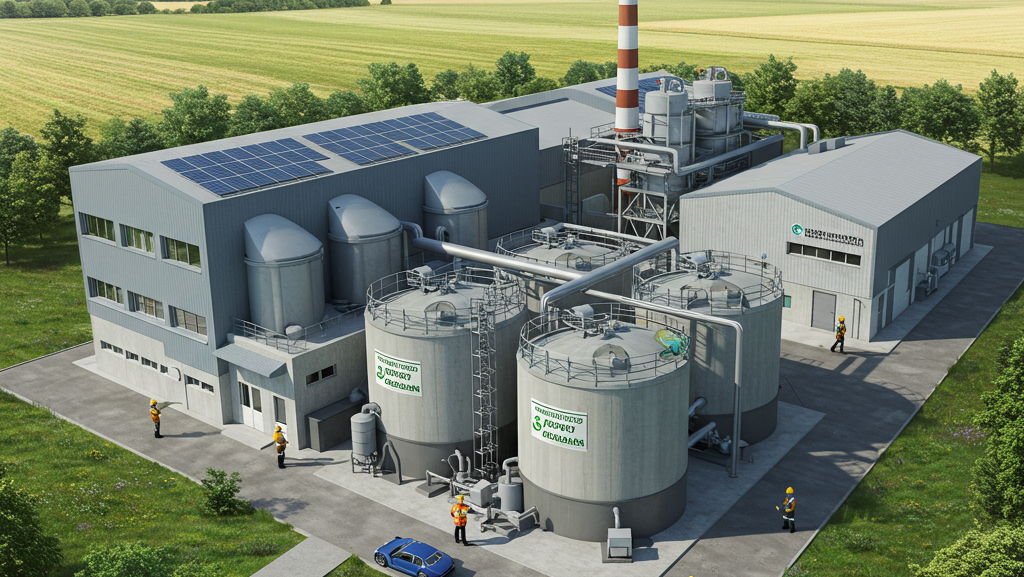Introduction to Local Food Truck Partnerships
In recent years, local food trucks have gained significant popularity, becoming a staple in many urban communities and offering diverse and appetizing cuisines. Restaurants have begun to recognize the potential benefits of partnering with these mobile culinary establishments, leading to a burgeoning trend of collaboration aimed at enhancing dining experiences for customers. Such partnerships enable restaurants to access fresh, locally sourced ingredients, creating a unique and appealing menu that often emphasizes seasonal availability.
The collaboration between restaurants and food trucks fosters a symbiotic relationship. On one hand, food trucks benefit from increased visibility and expanded customer reach by associating with established restaurants. This exposure can lead to higher foot traffic and potential sales. On the other hand, restaurants can leverage the creativity and flexibility of food trucks, allowing them to experiment with new dishes and flavors without significant investment in permanent changes to their existing menus. By working together, both entities can showcase their culinary skills and cater to a wider array of consumers as they celebrate the local food culture.
<pmoreover, a="" adaptability="" allows="" also="" among="" and="" as="" authentic="" businesses.="" but="" community="" community.="" concept="" contribute="" customer="" dedicated="" delivering="" diners="" dining="" efforts="" emerged="" engaging="" evolving="" experience.
Benefits of Using Local Ingredients
Utilizing local ingredients, particularly from food trucks, presents a myriad of advantages that can greatly enhance the culinary experience for both restaurants and their patrons. One of the most significant benefits is the improvement in food quality. Ingredients that are sourced locally are typically fresher and have a shorter travel time, resulting in enhanced flavors and nutritional value. When food is sourced from nearby producers, it is often harvested at peak ripeness, ensuring that customers receive the highest quality dishes. This freshness not only elevates the taste of the food but also potentially reduces the use of preservatives and additives, making meals healthier.
Moreover, supporting local food trucks contributes to the economic prosperity of the community. By purchasing from local vendors, restaurants can help stimulate the local economy, creating jobs and enhancing the livelihood of small business owners. This partnership nurtures a collaborative environment, allowing chefs and food truck operators to share resources and expertise, leading to innovative culinary creations that celebrate regional flavors.
In addition to economic stimulation, sourcing ingredients locally is fundamental to sustainability efforts. Transportation of food over long distances contributes significantly to carbon emissions, while local sourcing mitigates this environmental impact. By choosing to engage with nearby food trucks, restaurants not only reduce their carbon footprint but also promote sustainable practices within their community. This commitment to sustainability can foster a positive restaurant image as environmentally conscious, appealing to customers who prioritize eco-friendly dining options.
Furthermore, incorporating local ingredients can enhance a restaurant’s brand image and customer perception. Diners often appreciate establishments that emphasize the use of local produce, as it reflects a commitment to quality, community support, and environmental responsibility. Building a connection with local food trucks can serve as a unique selling point, setting restaurants apart in a competitive market.
Identifying the Right Food Trucks
Establishing a successful partnership with local food trucks begins with a strategic approach to identifying the right vendors. Restaurants must take the time to research the food trucks operating in their vicinity. This involves exploring various platforms, including social media, local food festivals, and food truck directories, which can provide valuable insights into the available options. For effective partnership development, it is essential to compile a list of food trucks that resonate with the restaurant’s ethos and culinary direction.
After identifying potential candidates, restaurants should meticulously evaluate the menus offered by these food trucks. A menu alignment is crucial to ensure that the food truck’s offerings complement the restaurant’s style and expectations. By examining factors such as ingredient quality, preparation methods, and overall presentation, restaurants can gauge whether a food truck can deliver the desired quality that aligns with their brand. Specialty food trucks that focus on organic, locally sourced, or unique cuisines may also present exciting opportunities that enhance the restaurant’s culinary offerings.
In addition to assessing the menu, evaluating the reputation of local food trucks plays a significant role in ensuring a successful partnership. This can involve examining customer reviews, ratings, and feedback across various platforms. Gathering insights from previous clients can highlight strengths and weaknesses, contributing to an understanding of the food truck’s service quality, reliability, and professionalism. A food truck with a strong, positive reputation is more likely to contribute positively to the restaurant’s image and customer satisfaction.
Through diligent research, careful evaluation of menus, and thorough assessment of reputations, restaurants can strategically choose food trucks that not only meet their ingredient needs but also align with their operational values and goals. This foundational step sets the tone for a successful collaboration that benefits both parties.
Establishing Effective Communication
Clear communication stands as a cornerstone for successful partnerships, particularly when collaborating with local food trucks for quality ingredients. Engaging in open dialogue allows both parties to establish mutual understanding and set a solid foundation for cooperation. To foster effective communication, it is essential to initiate discussions early in the partnership process, addressing key elements such as expectations, supply frequency, pricing, and quality standards.
First and foremost, articulating expectations is critical. Both you and the food truck operators should clearly outline what is anticipated from the collaboration. This may encompass delivery timelines, ingredient sourcing, and any specific culinary requirements. Having concrete expectations helps prevent misunderstandings and establishes accountability, which is vital for sustaining a reliable partnership.
Moreover, discussing supply frequency is essential for maintaining consistent operations. It is crucial to determine how often ingredients will be delivered and whether these deliveries can adapt to seasonal shifts or fluctuating demand. By agreeing on a supply schedule up front, both parties can manage inventory effectively, enhancing operational efficiency.
Pricing discussions should also be transparent, as they significantly influence the partnership’s sustainability. Clearly laying out pricing structures, payment terms, and any potential for discounts can build trust and avoid conflicts later on. A mutually agreeable pricing model ensures that both partners feel valued and fairly compensated for their contributions.
Lastly, establishing quality standards is paramount when sourcing from food trucks. Each party should agree on the specifications and standards that ingredients must meet. This collaborative approach not only safeguards the integrity of the food served but also strengthens the commitment to quality among partners. Together, these elements form the foundation of effective communication, ultimately leading to a robust and fruitful partnership.
Collaborative Marketing Strategies
Joint marketing initiatives between restaurants and food trucks can yield significant benefits for both parties, fostering a unique sense of community while also attracting a wider customer base. One effective strategy is to organize joint events, which can range from food festivals to seasonal gatherings. These events can effectively showcase the cuisines offered by both the restaurant and food trucks, creating an opportunity for cross-promotion. By sharing the spotlight, both entities can capitalize on each other’s customer networks and increase foot traffic.
Social media serves as a powerful tool in collaborative marketing. Restaurants and food trucks can work together to create engaging content that highlights their partnership. For instance, posting behind-the-scenes videos of food preparation or featuring special menu items created for specific events can pique customer interest. Utilizing popular platforms like Instagram and Facebook enables both businesses to reach a broader audience. Collaborative hashtags and joint giveaways can further enhance visibility and engagement, encouraging followers to share their experiences with the brands.
Cross-promotion is another strategic avenue that can prove beneficial. Restaurants can feature food truck offerings on their menu as daily specials, while food trucks can promote nearby restaurants on their social media channels. By doing so, customers will become aware of their local options, leading to increased patronage for both the restaurant and food truck. Additionally, placing flyers or special coupons in each other’s establishments serves as a tangible marketing technique that can convert interest into sales.
Such collaborative efforts not only boost sales but also enrich the local dining culture, allowing food enthusiasts to discover new flavors while simultaneously supporting local businesses. By working together, restaurants and food trucks can create a vibrant culinary landscape that encourages return visits and fosters community spirit.
Logistical Considerations for Supply Chain Management
When partnering with local food trucks, understanding the logistical aspects of supply chain management is crucial for ensuring a seamless workflow. Effective logistics encompass various elements, including delivery schedules, transportation methods, and inventory management, all of which contribute to maintaining consistent supply levels. This section explores these components in more detail, providing insights on streamlining operations and minimizing disruptions.
To begin with, establishing a reliable delivery schedule between your establishment and the food trucks is essential. This schedule should consider both peak hours and the specific demands of your menu offerings. Regular communication with food truck operators is necessary to adapt to fluctuating needs, thereby fostering a flexible supply chain. Utilizing tools such as shared calendars or scheduling software can enhance visibility and ensure that both parties are aligned on delivery times.
Transportation methods also play a pivotal role in logistical considerations. Identifying the best practices for transporting ingredients from food trucks to your kitchen can optimize freshness and quality. Utilizing insulated containers or refrigerated transport may be beneficial, particularly for perishable items. When developing partnerships, discussing these logistics with food truck operators allows for a mutual understanding of capabilities and any transportation constraints that may exist.
Furthermore, effective inventory management is vital for preventing supply shortages or excess waste. Implementing inventory tracking systems can help monitor stock levels and predict future needs based on sales patterns. Additionally, establishing safety stock levels ensures that critical ingredients remain available even in the event of unexpected deliveries or supply chain disturbances. Regular audits and assessments of inventory can further enhance accuracy, thereby maintaining a smooth operational flow.
In conclusion, addressing these logistical considerations not only helps to streamline operations but also enhances the partnership with local food trucks. A well-functioning supply chain minimizes disruptions, ultimately contributing to the overall quality of the food experience provided to customers.
Adapting Menu Items with Seasonal Ingredients
Restaurants can greatly benefit from partnering with local food trucks to create seasonal menus that emphasize fresh and high-quality ingredients. Such collaboration allows chefs to tap into the vibrant local food scene, providing an opportunity to curate dishes that reflect both the season’s bounty and the community’s culinary identity. By sourcing ingredients directly from food trucks that specialize in using locally-sourced products, restaurants can ensure that their menus are not only fresh but also rich in flavor and diversity.
One effective approach to adapting menu items is to highlight seasonal vegetables and fruits in dishes. For instance, during the fall, a restaurant might collaborate with a food truck that supplies fresh pumpkins and squash, incorporating these into soups, salads, or pastas. Similarly, in the summer, fresh berries and corn can become key ingredients in refreshing salads and salsas. This not only keeps the menu exciting but also demonstrates a commitment to utilizing quality, local ingredients that resonate with diners seeking authentic flavors.
Additionally, by actively adjusting menu offerings based on ingredient availability, restaurants can promote creativity in their culinary practices. This might include offering special dishes that change weekly or monthly, showcasing the freshest local produce available at that time. Highlighting such seasonal changes on menus can also engage patrons, sparking interest and encouraging repeat visits to see what new creations have been made. Furthermore, featuring local sourcing can enhance the restaurant’s brand image as sustainable and community-focused.
The partnership with food trucks fosters a dynamic culinary environment that thrives on variety. By collaborating in this way, restaurants not only support local businesses but also celebrate the unique flavors and textures that seasonal ingredients provide, leading to a more enriched dining experience for customers.
Legal and Safety Considerations
When establishing a partnership with local food trucks, it is crucial to navigate the array of legal and safety regulations that govern food service operations. Compliance with local licensing requirements is paramount. Each municipality may impose specific regulations on food vendors, which could include obtaining a food service license, vehicle permits, and health department certifications. Ensuring that the food trucks you collaborate with adhere to these guidelines is essential for maintaining legality in your partnership.
Food safety standards represent another significant element in this partnership. The Food and Drug Administration (FDA) outlines regulations that mandate safe food handling practices, temperature controls, and keeper of supplies to prevent foodborne illnesses. Engaging with food trucks that follow these safety practices not only enhances the quality of the ingredients but also protects your business from potential legal liability arising from food safety violations. Conducting thorough research on the food truck’s safety standards and processes can provide peace of mind.
Liability insurance is also an important legal consideration for partnerships with food trucks. Both parties should ensure that they carry adequate insurance coverage to protect against potential accidents or injuries that may occur during food preparation or service. This insurance serves as a safeguard against lawsuits that may arise and ensures that both businesses are protected financially in the event of unforeseen incidents.
In summary, addressing legal and safety considerations is fundamental when partnering with local food trucks. By thoroughly understanding licensing requirements, adhering to food safety standards, and securing proper liability insurance, both parties can foster a strong and successful collaboration. This not only enhances the quality of the ingredients served but also builds customer trust and confidence in the safety of the food provided.
Case Studies: Successful Food Truck Partnerships
In recent years, several restaurants have successfully partnered with local food trucks, transforming their offerings and expanding their customer base. One notable case involves a farm-to-table restaurant in Asheville, North Carolina, which collaborated with a popular vegan food truck. The restaurant aimed to diversify its menu while appealing to a broader demographic, particularly those seeking plant-based options. The food truck provided fresh, locally sourced ingredients and unique dishes, drawing in customers who appreciated the sustainable and healthy aspects. As a result, both the restaurant and the food truck experienced a significant increase in foot traffic and sales, demonstrating the potential benefits of such collaborations.
Another effective partnership occurred between a brick-and-mortar pizzeria in Portland, Oregon, and a mobile Italian gourmet food truck. The pizzeria sought to incorporate authentic Italian flavors into its menu without compromising on quality. By working with the food truck, they sourced specialty ingredients, such as artisanal cheeses and handmade pasta, enhancing the overall dining experience. Additionally, the food truck leveraged the pizzeria’s established customer base to expand its own visibility. The partnership not only boosted sales for both parties but also fostered a sense of community, as customers enjoyed the collaborative menu offerings at both locations.
A third case study highlighting the benefits of food truck partnerships is a craft brewery in Austin, Texas, which teamed up with a local taco truck. This collaboration allowed the brewery to host regular food truck events, creating a lively atmosphere while attracting food enthusiasts and beer lovers alike. The food truck provided authentic Mexican street tacos, perfectly complementing the brewery’s wide selection of craft beers. The events became popular social gatherings, increasing overall revenue for both the brewery and the food truck, while bolstering their reputations in the local food scene. Each of these partnerships demonstrates the myriad of potential benefits that can be gained from collaborating with food trucks, making them an attractive option for restaurants seeking to innovate and enhance their offerings.





